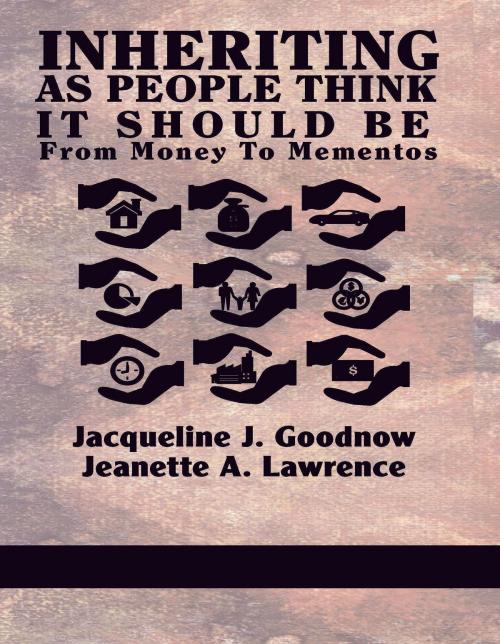Inheriting As People Think It Should Be
From Money To Mementos
Nonfiction, Reference & Language, Law, Administrative Law & Regulatory Practice, Education & Teaching, Administration| Author: | Jacqueline J. Goodnow, Jeanette A. Lawrence | ISBN: | 9781623962975 |
| Publisher: | Information Age Publishing | Publication: | June 1, 2013 |
| Imprint: | Information Age Publishing | Language: | English |
| Author: | Jacqueline J. Goodnow, Jeanette A. Lawrence |
| ISBN: | 9781623962975 |
| Publisher: | Information Age Publishing |
| Publication: | June 1, 2013 |
| Imprint: | Information Age Publishing |
| Language: | English |
What obligations to each other do people have or think they have? That question comes up in relation to family and marriage relationships, to law, and to moral reasoning. This novel and highly readable book takes it up in relation to inheritances: to what people think they should leave or be left, who should receive what, when, how, and why. Making the book novel is its range. Here are views about more than money. Covered are also houses, land and, an often neglected but emotionladen area, the personal and often indivisible things that mean one is remembered as an individual. Making it novel also is its emphasis throughout on meanings and on what people see as matters of choice or flexibility. Even in countries where the legal codes specify who should receive what after death (many European and most Islamic codes allow far less choice than Britishbased law does), people still have room for decisions about what they give away to various heirs or spend before death. What makes the book highly readable? One reason is its timeliness. Currently lively, for example, are debates over parents balancing their own needs and wishes against those of their children (“spending the kids’ inheritance”, in one description). Another is the book’s style. The writing is straightforward. Theory is not neglected but there is an absence of jargon. The material is also mostly based on narratives: on people’s own descriptions of arrangements that “worked well” or “did not work well” and on why they thought so. That base makes the book far from dry and far from being an account only of negative feelings, objections, challenges, and family rifts. It also makes it more relevant at times of indecision or misunderstanding. In short, a book for many readers, both within the social sciences and beyond it.
What obligations to each other do people have or think they have? That question comes up in relation to family and marriage relationships, to law, and to moral reasoning. This novel and highly readable book takes it up in relation to inheritances: to what people think they should leave or be left, who should receive what, when, how, and why. Making the book novel is its range. Here are views about more than money. Covered are also houses, land and, an often neglected but emotionladen area, the personal and often indivisible things that mean one is remembered as an individual. Making it novel also is its emphasis throughout on meanings and on what people see as matters of choice or flexibility. Even in countries where the legal codes specify who should receive what after death (many European and most Islamic codes allow far less choice than Britishbased law does), people still have room for decisions about what they give away to various heirs or spend before death. What makes the book highly readable? One reason is its timeliness. Currently lively, for example, are debates over parents balancing their own needs and wishes against those of their children (“spending the kids’ inheritance”, in one description). Another is the book’s style. The writing is straightforward. Theory is not neglected but there is an absence of jargon. The material is also mostly based on narratives: on people’s own descriptions of arrangements that “worked well” or “did not work well” and on why they thought so. That base makes the book far from dry and far from being an account only of negative feelings, objections, challenges, and family rifts. It also makes it more relevant at times of indecision or misunderstanding. In short, a book for many readers, both within the social sciences and beyond it.















